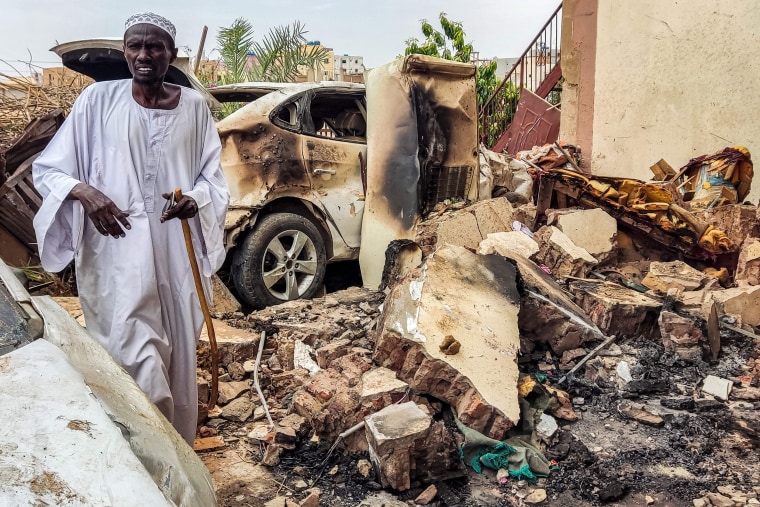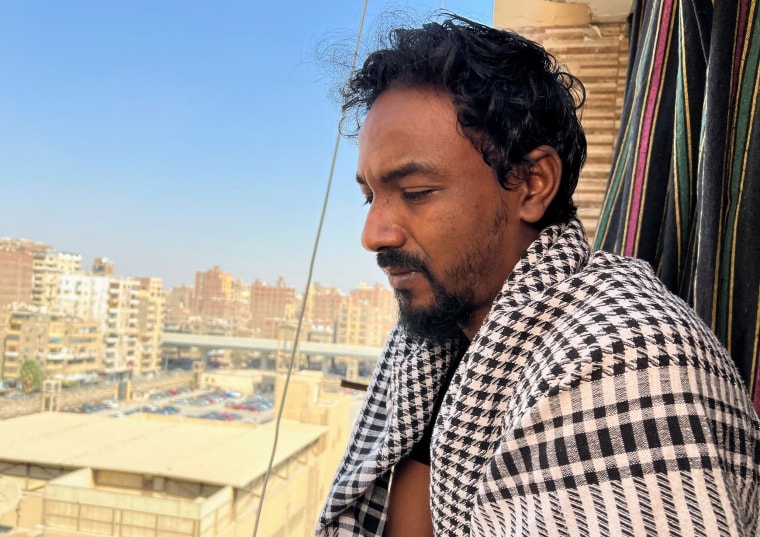Millions go hungry as war and waves of ethnic killing disrupt food supply in
Al Fiteihab, a district in the city of Omdurman across the Nile from Sudan’s capital, Khartoum, is on the front line in the battle between the army and the Rapid Support Forces (RSF). Residents searching for food say they have had to brave RSF checkpoints, as well as artillery and sniper fire by the RSF and the army.
People are scared to leave their homes for fear of harassment and beatings. Mahmoud Mohammed, 60, said he was robbed and whipped by RSF fighters when he tried to go to a market last December. “When I got home, my jalabia was covered in blood,” he said, referring to the traditional robe he was wearing. A family member confirmed that Mohammed was bloodied when he arrived home.
Mohammed’s wife then began venturing out in an effort to find food, but stopped after hearing that a group of women had been detained by the RSF and that others had gone missing. Two other residents said they had also heard of women going missing early this year. Reuters was unable to independently confirm these reports of disappearances. Last month, Mohammed and his family escaped from Al Fiteihab.
Electrical and water facilities have been damaged in the fighting, residents said, depriving them of power and running water. Many have suffered from diarrhea after being forced to drink untreated water from the Nile. The World Health Organization has reported more than 10,000 suspected cholera cases across the country since the outbreak of the war.

In an effort to feed thousands of residents in Al Fiteihab, volunteers set up soup kitchens early in the war that served gruel, rice and flat bread once or twice a day. But the communal kitchens were forced to cut back on these meals when an RSF siege of the area cut short their supplies last July, volunteer Mohieldin Jaafar told Reuters.
The volunteers are part of the so-called “emergency response rooms” — a network that has been feeding and evacuating residents in areas across the country. Three volunteers were killed by artillery shells and stray bullets in Al Fiteihab last year as they tried to help fellow residents, according to two volunteers.
In late February, the Sudanese army made advances in the area, breaking the siege on one part of Al Fiteihab. That has allowed food to start trickling in.
The military and the RSF together staged a coup against longtime autocrat Omar al-Bashir in 2019, but went to war when tensions rose over a planned transition toward civilian rule and elections. The RSF quickly took control of most of Khartoum, despite the army’s advantage in airpower and heavy weaponry. The paramilitary also tightened its grip on Darfur, which has been wracked by more than two decades of conflict and displacement.

The current war has triggered waves of ethnic killing in Darfur. Reuters has chronicled the violence there, which was spearheaded by the RSF and its allied militias. In a series of reports, the news agency exposed how the war unleashed a lethal, racially charged campaign against the Masalit people of West Darfur.
The RSF evolved from militias that were used to crush an insurgency that flared in Darfur in the early 2000s. By 2008, an estimated 300,000 people had died in the violence, many from starvation.
So far, the war in Sudan has killed more than 14,000 people, according to U.N. estimates, and driven more than eight million from their homes, making Sudan the world’s largest displacement crisis.
‘A death sentence’
Before the conflict, Khartoum had been almost entirely untouched by the fighting that ravaged Darfur. But people in many areas of the capital now find themselves caught in a war zone between the army and the RSF.
Across the Nile from Al Fiteihab, some 2,800 people are trapped in areas around the Sudanese army’s base in Al Shajarah neighborhood in Khartoum, according to two volunteers who escaped the area at the end of last year.
One of the volunteers, Gihad Salaheldin, said that after running out of food, men began sneaking out under cover of nightfall to search for supplies. Residents have also been drinking untreated water from the Nile, volunteers said.

Across the capital, the communications blackout forced communal kitchens to suspend operations because they could no longer receive donations sent via a mobile banking app. The emergency response rooms in Khartoum state said Sunday that they had…
Read More: Millions go hungry as war and waves of ethnic killing disrupt food supply in

